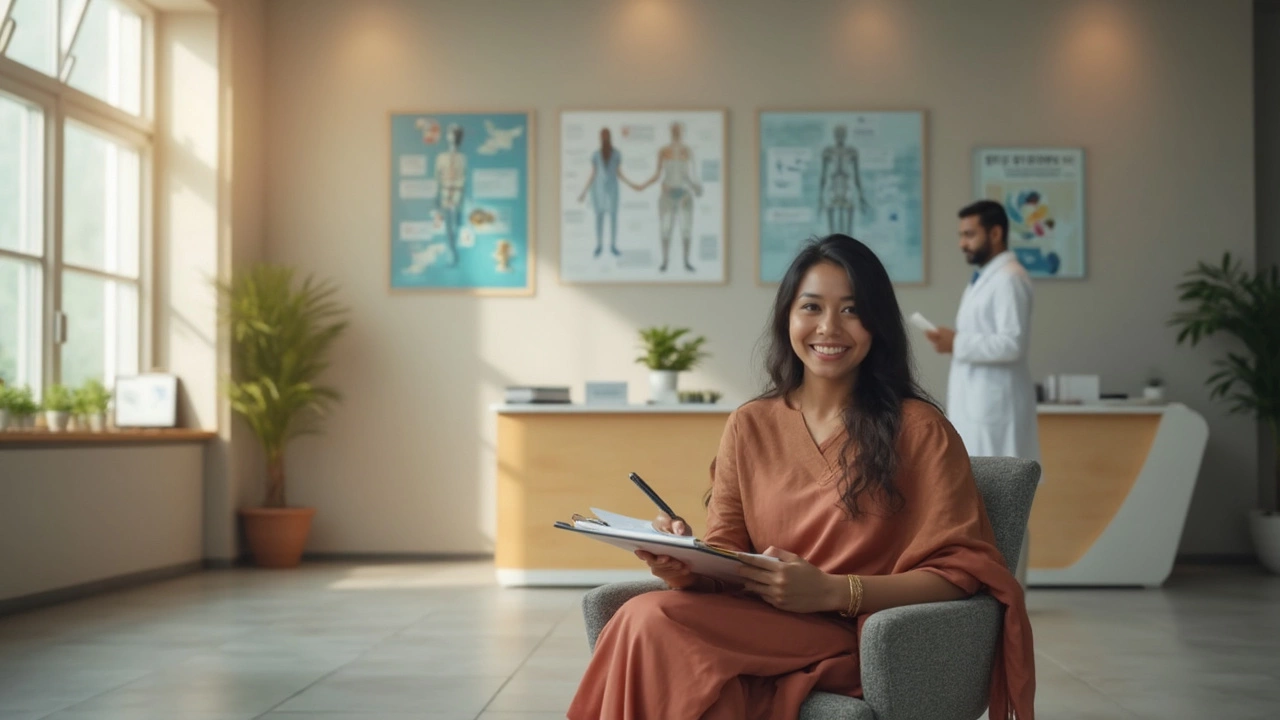First Visit: What to Expect at Your First Doctor's Appointment in India
When you make your first visit, the initial meeting with a healthcare provider to assess your condition or establish care. Also known as initial consultation, it sets the tone for your entire health journey in India. Many people feel nervous—waiting rooms are crowded, forms are long, and you’re not sure what to say. But a first visit doesn’t have to be confusing. It’s your chance to get answers, build trust, and start managing your health like a pro.
Indian healthcare is a mix of public hospitals, private clinics, and Ayurvedic centers. Your doctor appointment, a scheduled meeting with a licensed medical professional for diagnosis or advice could be with a general physician, a specialist, or even an Ayurvedic practitioner. What matters most is preparation. Bring your ID, any past medical records, a list of symptoms (with when they started), and a notebook. Don’t rely on memory. Write down every ache, sleep issue, or unusual change—even if it feels silly. Doctors see hundreds of patients. Your details matter.
Your medical checkup, a routine examination to evaluate overall health and detect early signs of disease might include basic vitals: blood pressure, temperature, pulse. If you’re seeing a specialist, they’ll ask deeper questions. For example, if you’re visiting for diabetes, they’ll want to know your diet, activity level, and whether you’ve tested your sugar at home. If it’s for anxiety, they might ask about stress triggers or sleep patterns. There’s no shame in saying, "I don’t know"—but don’t stay silent. Ask about tests, costs, and alternatives. In India, many clinics offer free initial consultations, especially in government hospitals. Private clinics may charge, but they often give you a clear breakdown upfront.
Don’t assume the doctor will lead the conversation. You’re the expert on your body. If you’re worried about cancer risk, ask about screening timelines. If you’re taking herbal supplements, tell them—some interact with prescription drugs. If you’re confused about a diagnosis, ask them to explain it again. No one should make you feel rushed or stupid. Your patient preparation, the actions taken before a medical visit to ensure effective communication and care is your power move.
After your visit, you might get prescriptions, lab orders, or follow-up dates. Keep all papers. Save receipts. Track how you feel over the next few days. If something changes—good or bad—note it. That’s your next conversation starter. The system isn’t perfect, but your awareness makes all the difference.
Below, you’ll find real stories and guides from people who’ve been through it: how to handle your first Ayurvedic reset, what to ask about diabetes meds, how to prepare for surgery recovery, and even how to spot early signs of serious illness. These aren’t theory—they’re lived experiences. Use them to walk into your next appointment with confidence.
Orthopedic Surgeon First Visit: What Actually Happens?
Wondering what goes down during your first visit to an orthopedic surgeon? This guide breaks down the typical steps, from paperwork to physical exams, so you can walk in prepared. Expect real talk about what hurts, how it started, and what comes next. Get practical tips on what to bring and questions to ask. You'll walk away knowing exactly what to expect—and what not to stress about.
read more
